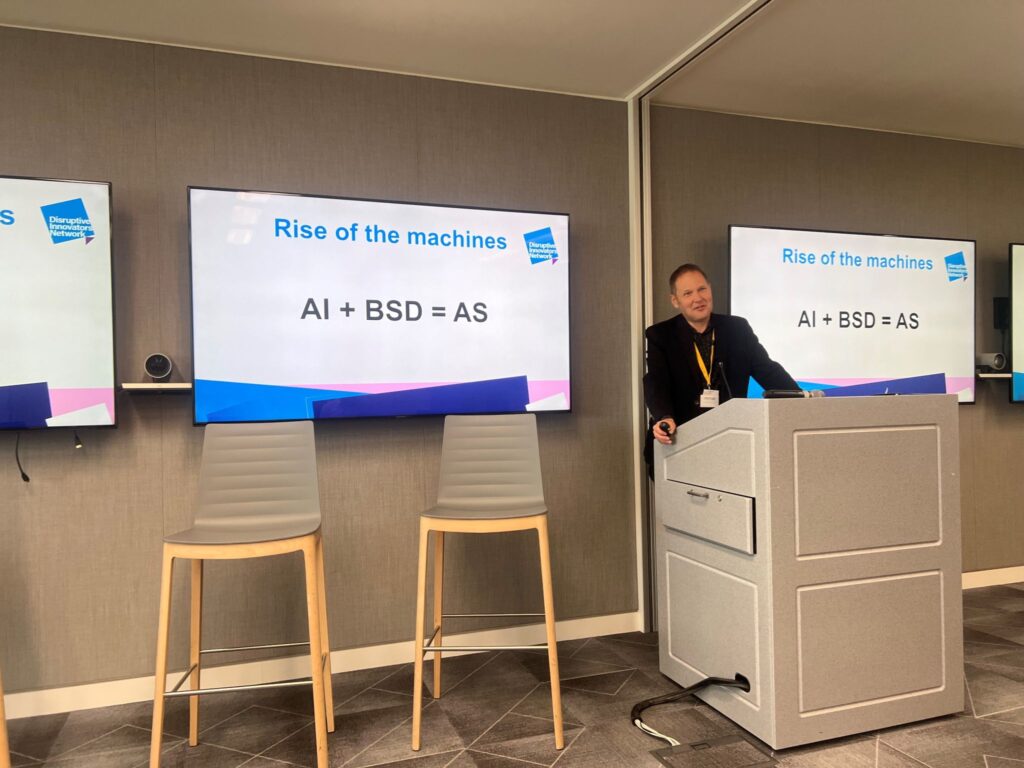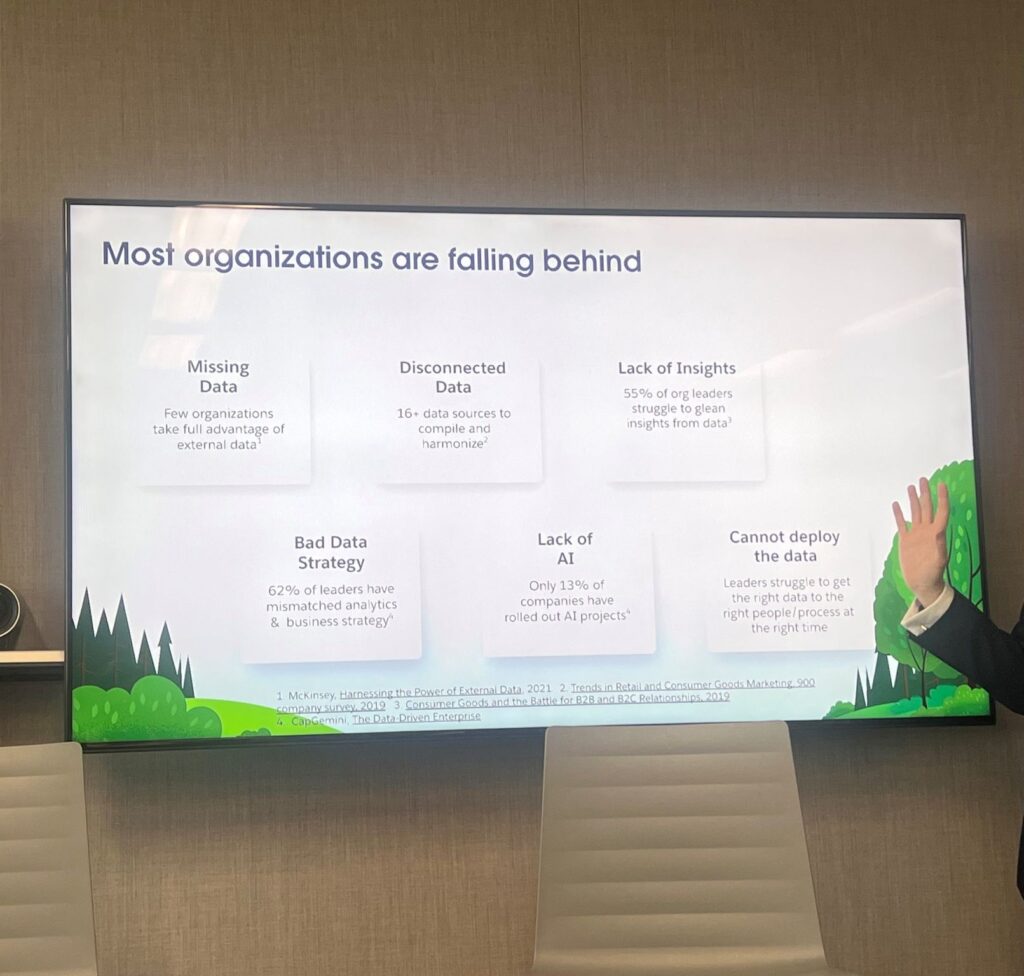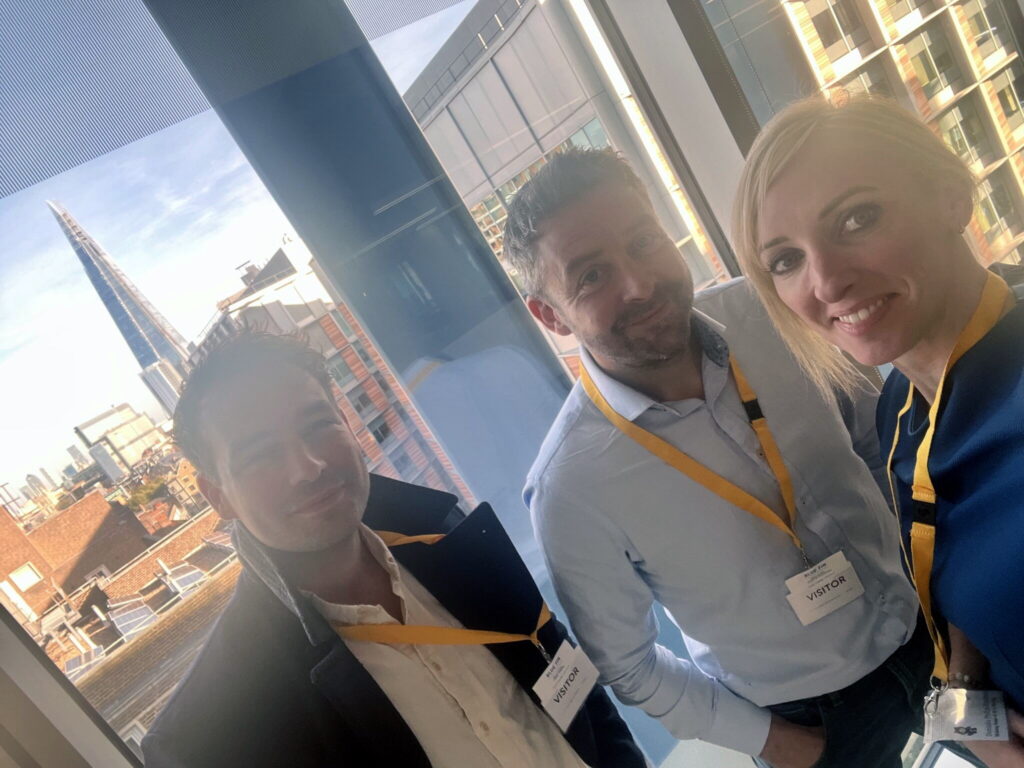Navigating the Future: Key Insights from ‘In the Blink of AI – Making Sense of AI in Housing’
As Enterprise Business Development Director at Mobysoft, I recently had the privilege of attending the ‘In the Blink of AI – Making Sense of AI in Housing’ conference, organised by the Disruptive Innovators Network and hosted by Salesforce at the Bluefin Centre a few weeks ago. This groundbreaking event was one of the first to exclusively focus on the intersection of artificial intelligence and the social housing sector. Here, I share my four key reflections on the conference and the current state of AI in the housing sector.
It’s Early Days: The Realities of AI in Social Housing
Despite the hype surrounding AI in the past year, including ChatGPT reaching 100 million users in just two months (for context – it took Instagram 2.5 years to reach the same milestone) and the UK hosting a global summit on the subject in 2024, the conference attendance was not as overwhelming as one might expect. You’d be forgiven for thinking that an inaugural event solely dedicated to AI within the social housing sector would be standing room only but alas, this was not the case, something not lost on organiser, Ian Wright (no, not that Ian Wright). This observation reflects the current pressures facing the sector, with organisations prioritising ‘back to basics’ approaches amid government challenges, ombudsman scrutiny, and negative media attention around the social housing sector. The prevalence of mergers in the sector – something I wrote about previously – also perhaps further emphasises a focus on ‘adapting’ rather than ‘adopting,’ highlighting the industry’s cautious stance towards transformative technologies.

Start with a Problem: The Foundation of Successful AI Initiatives
Any AI initiative, like any technology project, must begin with a clear problem statement and a set of required capabilities. Mobysoft CTO, Wayne Robshaw, emphasises the importance of starting with a defined problem to avoid a ‘misaligned reality’ and prevent yet another failed technology initiative. “As with every technology project, include AI, having a clearly defined problem is the imperative starting point – our product teams work closely with our clients to understand the problems and challenges being faced” said Robshaw. “Only when the problem is fully understood will a design and solution be proposed. This is an iterative process with multiple review points and refinements to build a MVP, ensuring that we deliver a solution that fully aligns with the clients needs” he added. From that, and the general noises coming from other technology professionals within the sector, we can glean that this kind of approach goes some way to ensuring that AI projects align with organisational goals, adding value and driving success.
It’s the Data, Stupid: The Crucial Role of Data Quality
Data quality is a critical pre-condition for AI success. Quite simply, data driven organisations will outperform their peers, but we know that in the sector data is often unstructured, siloed, disconnected and subjective. Ex-Peabody CEO, Brendan Sarsfield, recently argued a landlord’s data strategy is now more important that its IT strategy. I spoke to Laurie Franks, Head of Transformation at Believe Housing who had some interesting things to say about the importance of data quality and success with AI. “Many of us in the sector are excited about the opportunities that generative AI can bring to make our colleagues’ lives easier and, most importantly, improve our customers’ experience” commented Franks. “However, before we tread that path, we need to ensure that our data is clean and well-organized. Although many landlords have data held in several places and most are years away from getting that single version of the truth, lots of us are working hard to get there”.
She continued: “In the meantime, we shouldn’t be afraid of AI. There are many things we can start doing to explore the possibilities, such as upskilling our digital teams in data analytics and collating our knowledge base. One thing we need to do before all of that is to agree on our boundaries for data security. Once that is in place, we should encourage our colleagues to explore and have fun with AI. Before you know it, we’ll be using it safely to write reports, support us with recruitment, and much more.”

Culture is Key: Overcoming Innovation Struggles in the Sector
For anyone who’s spent any amount of time working within social housing or its connected industries, it’s evident that the sector has long struggled with innovation, hindered by scope-creep and affordability concerns. The burning question remains: can organisations afford to sustain internal development/product teams for innovation? The scarcity of STEM professionals and their high salary demands, coupled with the traditional reporting structure where CTO/CIOs often report into Finance (still!), poses additional challenges.
Indeed, an executive I spoke to at the event (who shall remain nameless) event went as far to reveal his need to have what amounts to a ‘shadow team’ of engineers and developers building capability, failing fast, and innovating – all of which was required to be hidden from the executive leadership team for fear of having the figurative rug pulled from beneath him and his team should the decision makers find out what they were up to. It’s quite a ridiculous situation I think you’ll agree, but one that needs to be brought to light and that will only be overcome by fostering a culture of innovation and embracing technology as a key executive consideration.

In conclusion, the ‘In the Blink of AI’ conference provided valuable insights into the current landscape of AI in social housing. While challenges exist, the potential for positive change through thoughtful problem-solving, data quality improvement, and cultural transformation is evident. As we navigate the future, it is essential for the sector to strike a balance between adapting to current pressures and embracing transformative technologies such as AI that hold the promise of a more efficient and customer-focused future.
For more resources on AI in social housing, read our feature on Navigating the Ethical Landscape of AI in Social Housing.